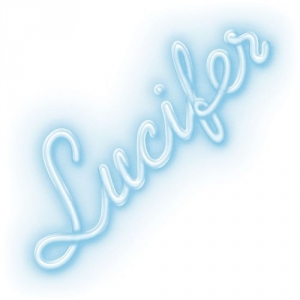Release Date: June 19, 2012
Label: Mexican Summer/Weird World
Over the past few years, the general thrust of the Los Angeles-based sister labels Not Not Fun and 100% Silk has produced all manner of deliciously blurry hybridity, enough to drive a fan bonkers — a blog-era collapse of post-punk, dub, vintage psychedelia, global funk, and Kosmische synth action into crap-fidelity pop that is slinky, groovy, and just weird enough. Yet the hobgoblin assigned to quality control can fall asleep on the job. For evidence, consider that the sister labels have released titles from both Octa Octa (soft-jellied Chicago worship that possesses a scant understanding of what makes funk funky) and Sun Araw (dude is a cracked visionary crashing nyabinghi into On the Corner-era Miles, kick-starting miniature Big Bangs of tribally tweaked pointillism in the process).
Right up there with Sun Araw in the keeper column is husband-and-wife duo Aaron Coyes and Indra Dunis who, under the simple yet catchy moniker Peaking Lights, released 936, one of 2011’s most trance-tastic album. The collection of art-school lovers rock dipped in fuzzy decay evokes romantic images of two scenester lovebirds undertaking marathon sessions of dope smoking, Tantric erotica, and studio-as-laboratory research in analog synthesizers and exotic percussion. Think femme-punk queen Christina Billotte’s spectralized vocals filtered through equator-sticky, neo-colonial exotica: Wackie’s, Awesome Tapes From Africa, Sublime Frequencies. Oh, with a pinch of Glass Candy sass thrown in for good measure, but not enough that the whole thing devolves into hipster aerobics.
With Peaking Lights’ new album comes a new label, Mexican Summer, but the couple continues to groove in lockstep with the NNF/100% family. After all, Lucifer is very much an expression of the scene’s deepening obsession with club music — the whole lo-fi house fad fueled by LA Vampires, Ital, Octa Octa, et al. This, mind you, doesn’t mean Peaking Lights have suddenly morphed into Frankie Knuckles, Jr. or anything. On the contrary, Dunis and Coyes still indulge their taste for vintage non-Euro fusion — hence opener “Moonrise,” a nice weave of what sounds like marimba and thumb piano. Yet a good chunk of Lucifer does sound as though it was constructed with a DJ’s desire for pulse regularity and seamless transitions: No less than five of the record’s eight cuts — in particular, the middle trifecta of “Live Love,” “Cosmic Tides” and “Midnight (In the Valley of Shadows)” — feel decidedly samey in terms of gait, tempo, and rhythmic scheme.
Listen, there’s nothing at all wrong with bands working within the parameters of dance-floor logic. In this particular instance, however, Coyes and Dunis don’t possess the discipline and exactitude necessary for artful dance music. They aren’t full-fledged producers, with the technical precision that tag implies. Rather, they are shaggy, hippie-bohemian punks with roots in older, more DIY manifestations of indie rock and noise. And they’re at their best when keeping things tight but loose. It’s an attitude that totally shaped 936, the way its rattling, patchwork shuffles shifted about with languorous reverb and certified-organic fuzz. There’s less of that here, alas.
Which leads us to another key struggle with Lucifer. Along with its fairly regimented beats, club music craves clarity in its production; and to achieve this, Peaking Lights have opted to drain a lot of the wonderfully soupy multi-dimensionality from their sound. This is most obvious on “Beautiful Son,” an ode to Coyes and Dunis’ literal love child, Mikko. Its individual components — acid-jazz guitar licks, gurgling/bubbling organ, and Happy Mondays-flavored piano — are all twinkly in a really seductive way. Ultimately, though, the tune as a whole lacks the bass-drenched murk and scratchy flaws that made such earlier highlights as “All the Sun That Shines” and “Amazing and Wonderful” so impactful.
On those tracks, Dunis’ half-spoken chants bled with mystery as it skipped across the whirring tug-and pull of the frayed avant-riddims. But now, she’s overly direct: “Good morning, son / Sunshine / My little son / Sunshine.” Sure, it’s probably good that a mother doesn’t sound mysterious when ruminating on her newborn, but she sounds reticent and uncertain without her voice wrapped in the previous record’s rich, perfectly imperfect cloak.
More than any other track, “Beautiful Son” embodies Lucifer‘s fundamental weakness: Peaking Lights have drifted from what they do best in order to make an album that lives up to some flawed notion of modern dance music. But there’s no need to pander. Coyes and Dunis have already proved that they know how to craft killer grooves, even with all the tattered noise and messy hiss. In fact, in their case, that sort of thing only enhances the effect, if they’d only let it.





